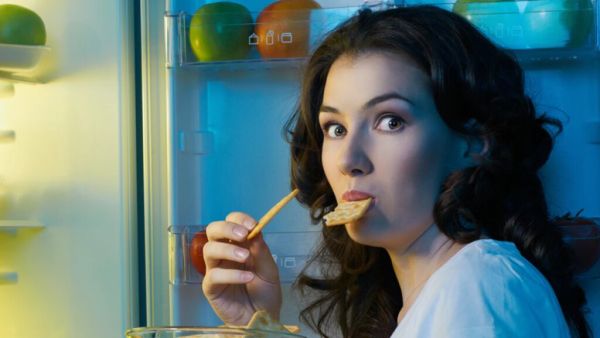
If you’re up late and feeling a craving creeping in, it can be tempting to reach for chips, ice cream or biscuits. But according to renowned biochemist Jessie Inchauspe – also known as the “Glucose Goddess” – those kinds of snacks can wreak havoc on both your sleep and your blood sugar. For diabetics or anyone concerned about glycemic control, the timing and composition of a late-night bite really matter. Here’s how to manage that midnight nibble.
Inchauspe explains that snacking late with sugary or processed foods – say ice cream, biscuits, chips – triggers a rapid rise in your glucose level, a “spike” that then crashes. That spike-and-drop can disturb your deep sleep, waking you up, making you feel exhausted the next day, or even hungrier. She puts it simply: instead of your body winding down, it’s forced into working to digest sugar and fat – a bad bed-time combo.
For someone with diabetes, that pattern becomes especially concerning: repeated glucose spikes and drops can interfere with insulin regulation, add to fatigue, weight gain and increase risk of cardiovascular issues.
The bottom line: the snack you choose matters just as much as how much you sleep, and when you sleep.
Inchauspe recommends choosing snacks that avoid the blood sugar spike. Her go-to choice? A portion of Greek yogurt with a little peanut butterThis combo offers protein + healthy fat, contributing to satiety (you stay full longer) and helping stabilize blood sugar.
She advises steering clear of processed, sugary or deep-fried “snacks” in the evening: biscuits, chips, sweets etc. Those often hide refined sugar, preservatives and unhealthy fats – all of which not only impact metabolism but also compromise sleep quality.
In short: pick something that supports your body’s rest mode, not something that forces your metabolism into overdrive.
Here are some snack ideas (inspired by these suggestions) that are appropriate if you’re managing diabetes and late-night hunger:
Greek yogurt is a healthy and light snack.
Photo Credit: iStock
Beyond the snack itself, the post highlights two additional habits that help reduce late-night cravings and stabilize glucose:
Final Takeaway for Diabetics
If you have diabetes, a late-night snack doesn’t have to be off-limits – but it should be chosen with care. Avoid sugary, processed options; instead, opt for light, protein- and healthy fat-rich snacks that won’t send your glucose soaring and crashing. Pair that with good hydration, balanced daytime meals and regular pattern sleeps, and you’re far more likely to wake up rested – not restless or hungry.
Important note: If you’re managing diabetes (or any other health condition), always check with your healthcare provider before shifting your eating habits.